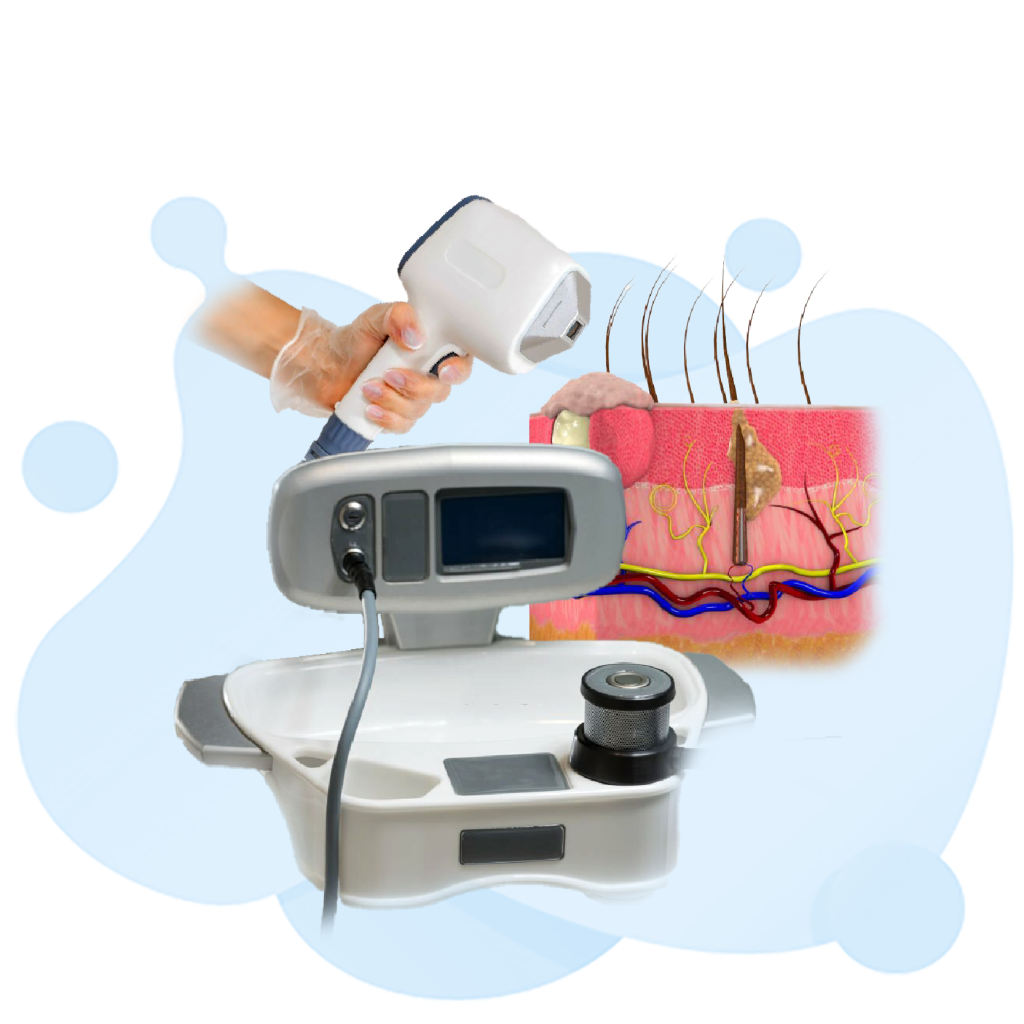Dermatologist Certification 2025

A dermatologist certificate is a testament to the expertise and knowledge of an individual in the field of dermatology. It represents years of academic study, practical experience, and dedication to treating and caring for skin conditions. Obtaining this certificate requires completing extensive training in medical school, followed by specialized residency programs focused solely on dermatology.
Free Dermatologist Certification Practice Test Online
Dermatologist Certification Requirements
Becoming a certified dermatologist is no easy feat. It requires years of education, training, and experience. To start with, aspiring dermatologists must obtain a bachelor’s degree from an accredited college or university before applying to medical school. Once accepted into medical school, they undergo four years of intense study to earn their Doctor of Medicine (MD) or Doctor of Osteopathy (DO) degree.
After graduating from medical school, the journey towards becoming a certified dermatologist continues with a residency program. This program can last anywhere from three to four years, during which time the future dermatologist receives specialized training in diagnosing and treating various skin conditions. It is during this period that they gain hands-on experience in conducting skin biopsies, performing surgeries, and mastering cosmetic procedures.
Once the residency program is completed successfully, dermatologists are eligible to take the certification examination administered by the American Board of Dermatology (ABD). This rigorous exam evaluates their knowledge across all aspects of dermatology and ensures that they meet the highest standards in patient care and safety. Upon passing this exam, individuals become board-certified dermatologists and can practice independently or pursue further subspecialty training if desired.
In conclusion, obtaining certification as a dermatologist involves several critical milestones – completing undergraduate studies, attending medical school for an MD or DO degree, undergoing residency training in dermatology programs all while gaining practical experience along the way. The final step is successfully passing the certification examination conducted by ABD. These requirements ensure that dermatologists have the necessary knowledge, skills, and expertise to diagnose and treat various skin conditions.
Dermatologist Salary
Dermatology is a highly lucrative field that offers attractive salaries to medical professionals. The salary of a dermatologist can vary depending on several factors such as location, experience, and type of practice. On average, dermatologists in the United States earn around $363,000 per year. However, it is important to note that this figure can significantly increase for those who are well-established in their careers or have their own private clinics.
One interesting aspect to consider is the regional variation in dermatologist salaries. For example, San Francisco has one of the highest concentrations of dermatologists, which results in fierce competition and drives up average wages. On the other hand, rural areas may have fewer opportunities for specialists but offer higher demand due to limited access to healthcare services. This means that dermatologists practicing in less-populated regions could potentially earn more than their urban counterparts.
Another trend shaping the future of dermatology salaries is the increasing popularity of cosmetic procedures and aesthetic services. As more individuals seek out treatments like Botox injections or laser skin resurfacing to enhance their appearance, there has been a surge in demand for skilled cosmetic dermatologists. These specialized procedures often come with higher fees compared to traditional medical services, enabling practitioners who focus on aesthetics to command higher salaries.
In conclusion, while there are various factors influencing how much a dermatologist earns – ranging from location and experience to specialization – it remains an incredibly rewarding profession financially. With regional variations and emerging trends like increased demand for cosmetic procedures, dermatology continues to be a lucrative field for those in the profession. In addition to a competitive salary, dermatologists often have the opportunity to supplement their income through private practice, research grants, and teaching positions.

Online Dermatologist
Online dermatology has revolutionized the way we seek medical advice for our skin concerns. With just a few clicks, we can now connect with qualified dermatologists from the comfort of our own homes. This convenience and accessibility have made online dermatology a popular option for those who may not have easy access to specialists or who prefer the privacy and convenience of virtual visits.
One of the benefits of online dermatology is the ability to receive expert medical advice without leaving your house. Whether you live in a rural area with limited access to healthcare or simply lead a busy lifestyle, online dermatologists can provide consultations and treatment plans that fit your needs. Additionally, by eliminating geographical constraints, online platforms allow patients to seek opinions from renowned dermatologists around the world, expanding their options and potentially leading to more effective treatments.
Furthermore, online consultations can be particularly beneficial for patients struggling with self-esteem issues caused by their skin conditions. Visiting a traditional clinic may feel intimidating or uncomfortable for individuals dealing with acne, psoriasis, or other visible skin conditions. Online platforms offer an opportunity for these patients to discuss their concerns confidentially and receive personalized care without feeling self-conscious or judged.
In conclusion, online dermatology offers convenience, accessibility, and reassurance to individuals seeking expert advice for their skin concerns. By connecting patients with qualified dermatologists through virtual consultations, this innovative approach opens up new possibilities in providing quality skincare from anywhere in the world while maintaining privacy and comfort for all patients involved.
How to Become a Dermatologist
One of the first steps to become a dermatologist is to pursue a bachelor’s degree in a relevant field, such as biology or chemistry. While it is not mandatory to have a specific undergraduate major, these subjects provide a solid foundation for future medical studies. Additionally, maintaining a high GPA is essential as admission into medical school can be highly competitive.

After completing their undergraduate degree, aspiring dermatologists must then attend and graduate from an accredited medical school. This typically takes four years and includes classroom instruction and clinical rotations. Once medical school is completed, graduates must pass the United States Medical Licensing Examination (USMLE) before being able to practice medicine independently.
Upon passing the USMLE, aspiring dermatologists must complete a residency program in dermatology. These programs typically last three years and offer comprehensive training in both general medicine and specialized dermatological procedures. During this time, residents gain hands-on experience diagnosing and treating various skin conditions under the supervision of experienced doctors.
Becoming a dermatologist requires dedication, perseverance, and several years of education and training. However, for those with a genuine passion for skin care and helping others feel comfortable in their own skin, this rewarding career path offers plenty of opportunities for professional growth and personal satisfaction.
Associated Dermatologists
Associated Dermatologists is a leading medical practice specializing in dermatology and skin care. With a team of highly trained and experienced dermatologists, they offer a comprehensive range of services to help their patients achieve healthy and beautiful skin. From acne treatment to skin cancer screenings, their skilled professionals use the latest technology and techniques to provide effective solutions for all types of dermatological issues.
One aspect that sets Associated Dermatologists apart is their commitment to personalized care. They understand that every patient is unique and requires individualized treatment plans tailored specifically to their needs. This personalized approach ensures that each patient receives the most appropriate and effective treatments for their specific condition, resulting in faster recovery times and better overall outcomes.
Moreover, Associated Dermatologists prides itself on staying up-to-date with the latest advancements in dermatology research and technology. Their team regularly attends conferences, workshops, and seminars to expand their knowledge base and ensure they are offering patients the most cutting-edge treatments available. By keeping abreast of new developments in the field, they can provide patients with innovative solutions that may not be offered at other practices.
In conclusion, if you’re looking for top-quality dermatological care from a team of experts who prioritize personalized treatment plans backed by the latest research, look no further than Associated Dermatologists. With a commitment to excellence in patient care and a dedication to staying ahead of the curve in terms of technological advancements, they are undoubtedly one of the premier choices for all your dermatology needs. Experience firsthand the difference their expertise can make in improving your skin health and enhancing your overall well-being.

How Much Does a Dermatologist Cost
The cost of visiting a dermatologist can vary depending on several factors. One of the main factors is the location, as prices tend to be higher in cities compared to rural areas. Another factor is the type of service or treatment you require. A basic consultation with a dermatologist might range from $100 to $200, while specialized treatments like chemical peels or laser therapy can cost anywhere from $200 to $500 per session.
Keep in mind that these are just average estimates and prices may vary significantly based on your specific needs and the expertise of the dermatologist. It’s also important to consider that health insurance coverage can greatly influence the out-of-pocket costs associated with dermatological treatments. Therefore, it is recommended to consult with your insurance provider beforehand to determine which services are covered and what percentage you will be responsible for.
While some people may view dermatology expenses as an unnecessary luxury, taking care of our skin goes beyond mere aesthetics; it involves maintaining our overall health. Dermatologists have extensive training and expertise in diagnosing and treating various conditions, including skin cancer. By seeking their professional advice, we not only address immediate concerns but also prevent potential complications down the road. Therefore, viewing a visit to a dermatologist as an investment in one’s long-term well-being seems more logical than worrying solely about short-term financial implications.
Dermatologist Jobs
Dermatologist jobs, often seen as lucrative and prestigious, offer a fascinating blend of medical expertise and aesthetic beauty. However, the field is evolving rapidly, creating new challenges and opportunities for dermatologists. One such area is teledermatology, which allows patients to consult with dermatologists remotely using digital platforms. This technology not only enhances accessibility and convenience for patients in remote areas but also presents an exciting frontier for dermatologists to expand their reach.

Another emerging trend in dermatology is the increasing demand for cosmetic procedures. From injectable fillers to laser treatments, there has been a surge in patients seeking these non-surgical interventions to enhance their appearance. Dermatologists can embrace this growing demand by honing their skills in aesthetic medicine and expanding their range of services beyond traditional medical treatments. By combining medical expertise with artistic vision, dermatologists have the opportunity to become true masters of transformation – helping individuals regain confidence and feel comfortable in their own skin.
In conclusion, while dermatologist jobs may be highly sought-after due to its appealing mix of medicine and aesthetics, it’s crucial for professionals in this field to stay abreast of new developments and adapt accordingly. Teledermatology offers a promising platform to revolutionize patient care delivery while cosmetic procedures present opportunities for innovation within the field. By embracing these emerging trends, today’s dermatologists can unlock a world of possibilities that would enable them to truly make a difference in people’s lives – both inside and outside the clinic walls.
Dermatologist Years of School
Becoming a dermatologist requires years of extensive education and training. After completing a bachelor’s degree, aspiring dermatologists must attend four years of medical school. During this time, they focus on general medical knowledge and skills necessary to become a doctor.
Following graduation from medical school, the path to becoming a dermatologist continues with a rigorous residency program. The residency program typically lasts for three years and provides hands-on clinical experience in diagnosing and treating skin conditions under the guidance of experienced dermatologists. This phase allows future dermatologists to specialize in various areas within the field, such as surgical or cosmetic dermatology.
However, the journey doesn’t end there. To stay current with advancements in treatments and technologies, many dermatologists invest additional years into specialized fellowship programs. These programs offer advanced training in specific subfields like pediatric or Mohs surgery that can enhance their expertise even further.
Being aware of the length of time it takes to become a qualified dermatologist not only highlights their dedication but also instills confidence in patients seeking their expertise. It is reassuring to know that these professionals have undergone an arduous process to acquire extensive knowledge and skills required for effective treatment of skin conditions.